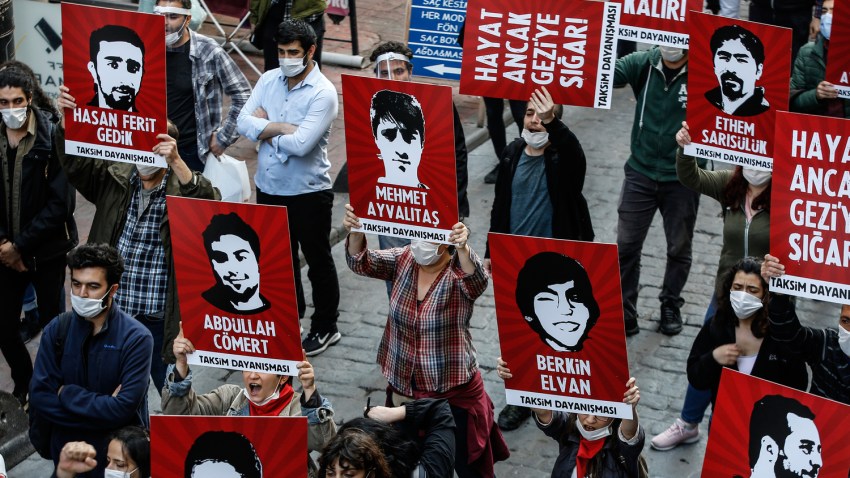Nine years after the Gezi Park protests erupted in Istanbul and quickly spread to many other parts of Turkey, the “culprits” behind the demonstrations were sentenced in April. Civil society leader and philanthropist Osman Kavala was convicted of having attempted to overthrow the government and sentenced to life imprisonment; seven other co-defendants received 18 years.
Like many other prosecutions in Turkey these days, the Gezi case was based not on evidence, but pure conjecture. Kavala has long been a target of Turkish President Recep Tayyip Erdogan’s government. He had already been imprisoned for four years based on spurious accusations that he was involved in the failed 2016 coup attempt against Erdogan. Erdogan’s antipathy for Kavala appears to be personal, perhaps dating back to 2013, when Kavala expressed concern that Erdogan’s since-successful project to establish a presidential system in Turkey would result in a “totalitarian” regime.
His conviction is just the latest evidence of Turkey’s long slide during Erdogan’s almost 20 years of continuous rule toward becoming a populist-authoritarian regime in which Erdogan has assumed complete control over all of Turkey’s institutions. Bodies that in democratic countries are ordinarily independent or autonomous of the state—such as the judiciary, the press, law enforcement, universities and the central bank, to name a few—are all fully under his control to guide, manipulate and command.

